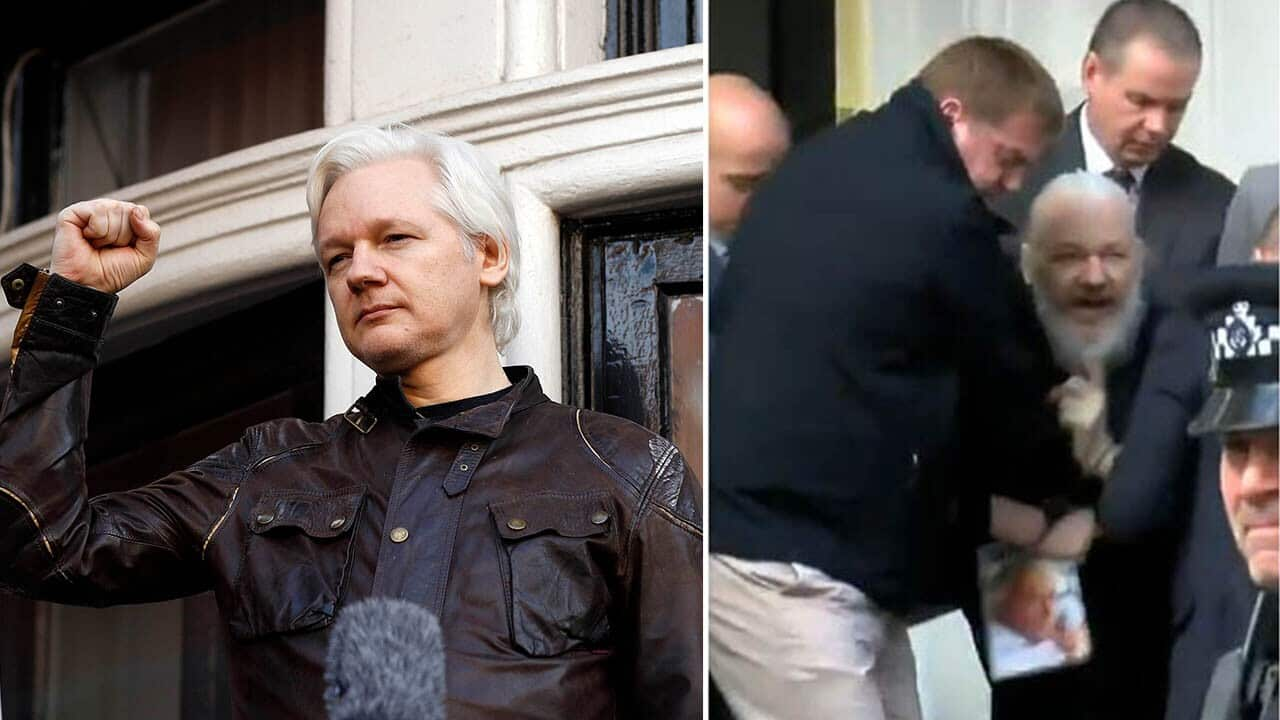The United States has requested the extradition of WikiLeaks founder Julian Assange, British police have said, after arresting him at the Ecuadorean embassy in London on Thursday.
"Julian Assange, 47, has today, Thursday 11 April, been further arrested on behalf of the United States authorities, at 10:53hrs after his arrival at a central London police station," a police spokesman said.
"This is an extradition warrant under Section 73 of the Extradition Act."
UK Home Secretary Sajid Javid confirmed the WikiLeaks founder is now in police custody and will face court shortly.
Video shows a bearded Assange resisting and arguing as he is dragged down several steps at Ecuador's London embassy by officers and bundled into a police van.
The 47-year-old has been taken into custody at a central London police station where he will remain, before he stands before Westminster Magistrates' Court as soon as possible.
Assange has been living in the embassy for almost seven years.
A spokesman for the Ecuadorian Embassy said Assange had been kicked out for “violating international conventions”.
Britain has guaranteed to Ecuador the WikiLeaks founder will not be extradited to a country that has the death penalty, Ecuadorean President Lenin Moreno said on Thursday after Assange was arrested in London.
"In line with our strong commitment to human rights and international law, I requested Great Britain to guarantee that Mr Assange would not be extradited to a country where he could face torture or the death penalty," Moreno said in a video posted on Twitter.
"The British government has confirmed it in writing, in accordance with its own rules."
Assange took refuge in Ecuador's London embassy in 2012 to avoid being extradited to Sweden, where authorities wanted to question him as part of a sexual assault investigation.
That probe was later dropped, but Assange fears he could be extradited to face charges in the United States, where federal prosecutors are investigating WikiLeaks.
Assange's relationship with his hosts collapsed after Ecuador accused him of leaking information about President Lenin Moreno's personal life. Moreno had previously said Assange has violated the terms of his asylum.
British Foreign Secretary Jeremy Hunt has thanked Ecuadorian President Lenin Moreno for allowing police to arrest WikiLeaks founder Julian Assange at Ecuador's London embassy.
"Julian Assange is no hero and no one is above the law. He has hidden from the truth for years," Hunt tweeted.
WikiLeaks said Ecuador had illegally terminated Assange's political asylum in violation of international law.
To some, Assange is a hero for exposing what supporters cast as abuse of power by modern states and for championing free speech.
But to others, he is a dangerous rebel who has undermined the security of the United States.
Kremlin spokesman Dmitry Peskov, answering a question about the arrest of WikiLeaks founder Julian Assange in London, said Moscow hopes that his rights will not be violated.
